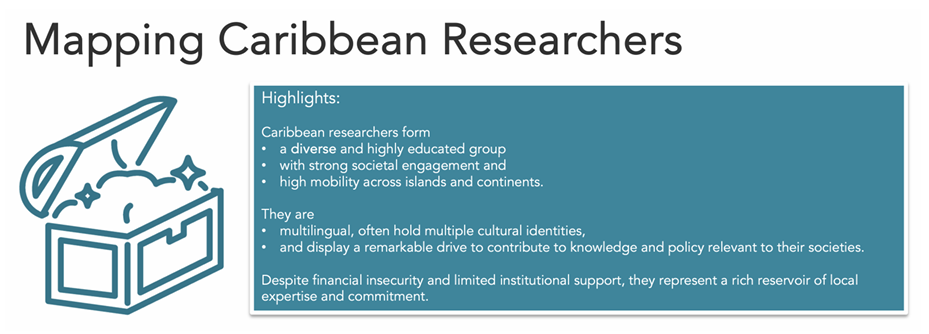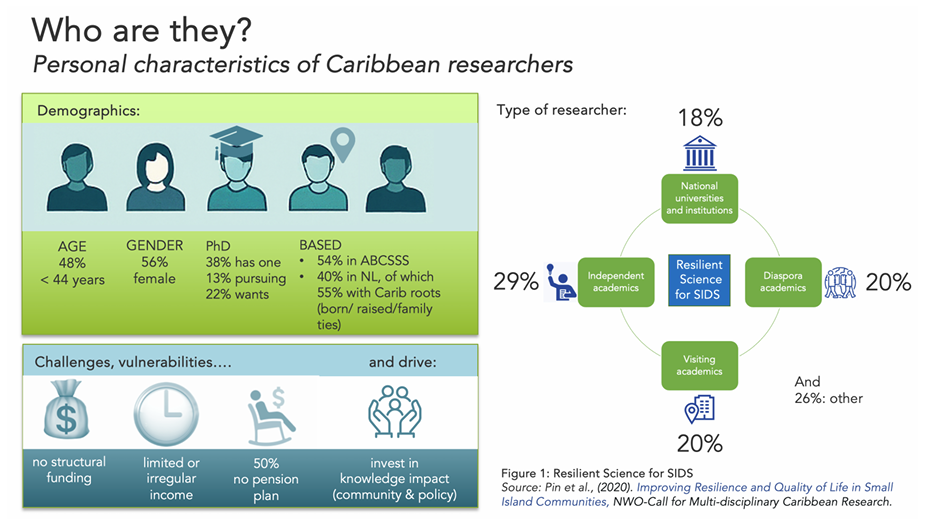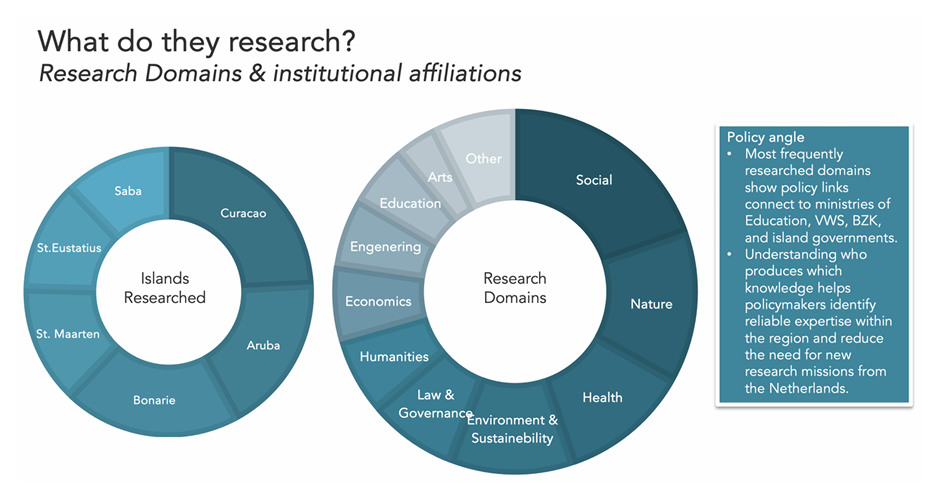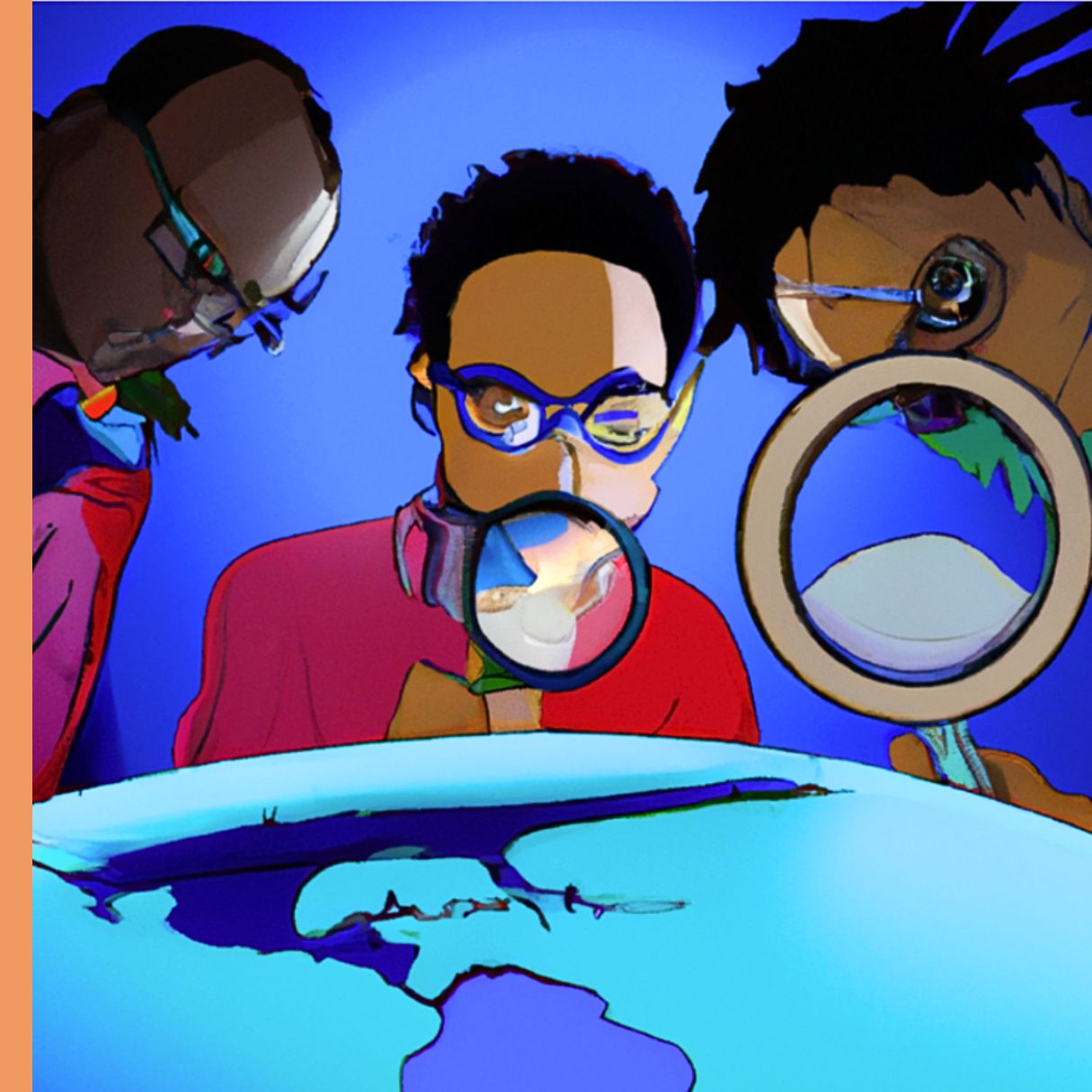GREAT BAY--A new Kingdom funded study has put numbers and faces to something many people sensed but could not see clearly: a large, scattered and often invisible community of researchers connected to Aruba, Bonaire, Curaçao, St. Maarten, Saba and St. Eustatius.
The report, Mapping the Academic Community of the ABCSSS Islands, was carried out by RE-Quest researchers Dr. Renske Pin and Dr. Steffen van Heijningen for the Ministry of the Interior and Kingdom Relations (BZK). It shows that the six islands are tied into a resilient but underused academic ecosystem that stretches from the islands themselves to the Netherlands and a wider Caribbean and global diaspora.
The central questions were simple but far reaching: who is doing research in, on and with the islands, under what conditions, and what support this community needs to strengthen knowledge and policymaking in the Caribbean part of the Kingdom.

Diverse and mobile knowledge community
The survey, conducted between May and August 2025, gathered responses from 383 researchers and knowledge professionals. Participants came from universities, research institutes, government, NGOs, health institutions and a significant group of independent scholars and consultants.
One of the clearest findings is how multi layered the community is. Alongside staff at local universities and institutes, the authors identify three other groups that are crucial for the islands:
• Independent researchers living and working on the islands
• Visiting academics who carry out time bound fieldwork or teaching
• Diaspora academics who live abroad but maintain active ties, return regularly and often bring strong publication records and access to competitive funding
Many respondents lead multi local lives, moving between the islands, the Netherlands and other regions while continuing to work on Caribbean topics. English and Dutch are widely spoken in the group, with many also using Spanish and Papiamentu. This supports cooperation across the wider Caribbean and Latin America.
Educational levels are high. Thirty eight percent of respondents have completed a PhD, 13 percent are currently pursuing one and another 22 percent say they want to start a PhD in future.
The disciplinary spread is broad. Social sciences form the largest cluster, followed by natural sciences, health, environmental studies, law, governance, education and the arts. A significant share describe their work as interdisciplinary, combining research, teaching, policy advice and community engagement.

Strong public mission, fragile working conditions
The report stresses that most of this work is closely linked to issues that matter for daily life on the islands: poverty and inequality, public health, education, environment, governance and culture. Knowledge is not only shared in academic journals but also through policy reports, community meetings, local media and digital platforms.
At the same time, the infrastructure behind that work is fragile. Many respondents depend on short term projects, part time appointments or freelance contracts. That makes it harder to secure stable income, protect research time and build long term lines of inquiry.
When asked about obstacles, respondents most often cited limited access to funding, lack of access to data and insufficient institutional support. High travel and logistics costs and difficulty building sustainable partnerships were also mentioned often.
These concerns are mirrored in the support that researchers say they need. Top priorities include financial support, better networking with other researchers, more opportunities for partnerships and stronger backing from institutions and government.
The picture that emerges is of a committed community that wants to contribute more, but is often held back by fragmented funding, scattered data and limited coordination.
Case for a Caribbean Research Portal
A central recommendation in the report is the creation of a Caribbean Researchers Portal, a digital platform that would serve as a central hub for researchers connected to the six islands.
According to the authors, such a portal should:
• Make researchers and their work findable and visible
• Help governments, NGOs and media quickly identify relevant expertise
• Facilitate collaboration between island based, Dutch and diaspora scholars
• Provide live statistics on capacity, collaborations and knowledge use over time
Interest in such a portal is strong. A large majority of respondents want to be invited when it is launched. Among diaspora researchers, most say they are willing or potentially willing to be associated with research proposals linked to the islands.
Pin and Van Heijningen argue that a well governed portal could become the connective tissue of a more resilient science system for small island contexts. It would reduce duplication, make better use of existing expertise and support long term monitoring of trends.

Knowledge for better policy
For BZK, the mapping project is part of a broader effort to strengthen the strategic knowledge function around Kingdom relations and to promote evidence based policymaking.
The report notes that involving Caribbean based and Caribbean rooted researchers in policy studies brings clear advantages: local language skills, contextual understanding and established networks, as well as fewer long haul research trips from Europe and less “research fatigue” among island institutions that are regularly approached by new external teams.
The authors conclude that the ABCSSS islands are connected to a substantial reservoir of expertise that is internationally oriented, multilingual and closely engaged with community needs. To fully unlock that potential, they call for targeted investment in:
• More stable and accessible funding
• Better data and research infrastructure
• Fair and inclusive governance of knowledge production
• A Caribbean Research Portal that keeps the community connected over time
With modest but focused investments, the report argues, this ecosystem can play a much larger role in shaping policy and supporting an inclusive, sustainable future for Aruba, Bonaire, Curaçao, St. Maarten, Saba and St. Eustatius.
The report concludes that strengthening local and regional knowledge infrastructures is essential for an inclusive and sustainable future. Read the summary and results at: www.tinyurl.com/ReportMappingCaribResearchers
Join Our Community Today
Subscribe to our mailing list to be the first to receive
breaking news, updates, and more.






